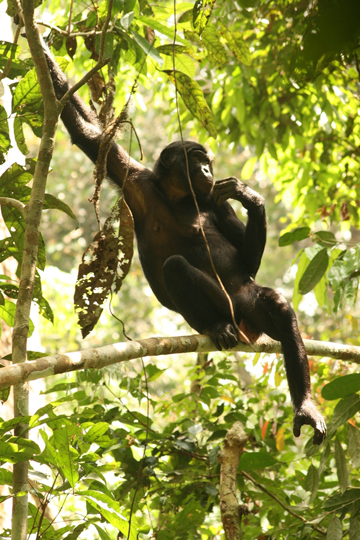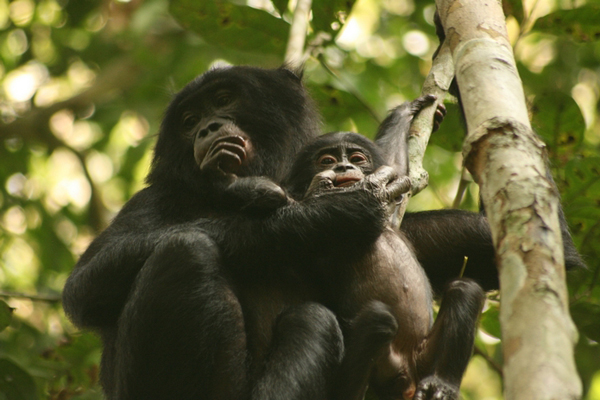The bonobo (Pan pansicus) is known for being a key stone species, a species that plays an important role in maintaining ecosystem functions. Recent studies now reveal the bonobo as being the Congo Basin’s second greatest and most effective tropical forest “gardener”.
Bonobos, primates closely related to chimpanzees, maintain forest diversity by acting as gardeners for the Congo Basin. Through their consumption, digestion, and defecation of seeds, bonobos greatly enhance the reproduction and dispersal of forest vegetation.
97% of the fruit bearing tree seeds that pass through a bonobo are successful at germinating; furthermore, several tree species depend on bonobo interaction for germination.

Other major African tropical forest gardeners include: the African forest elephant (the most powerful gardener), monkeys, bats, birds, and rodents. African forest elephants can disperse seeds up to roughly 57 km from the parent tree, yet new research shows bonobos are able to disperse seeds over longer distances and disperse a larger variety of seeds.
However, bonobos are listed as endangered by the IUCN Red List due to illegal poaching for bushmeat and habitat loss caused by deforestation. The removal of bonobos as well as other key stone species not only impacts specie populations, but also threatens entire forest ecosystem functions.

The public can help save the bonobo and maintain diverse forests through education of forest and animal protection and by purchasing only eco-certified wood products.

Want to learn more? Read the full story here – Bonobos: the Congo Basin’s great gardeners